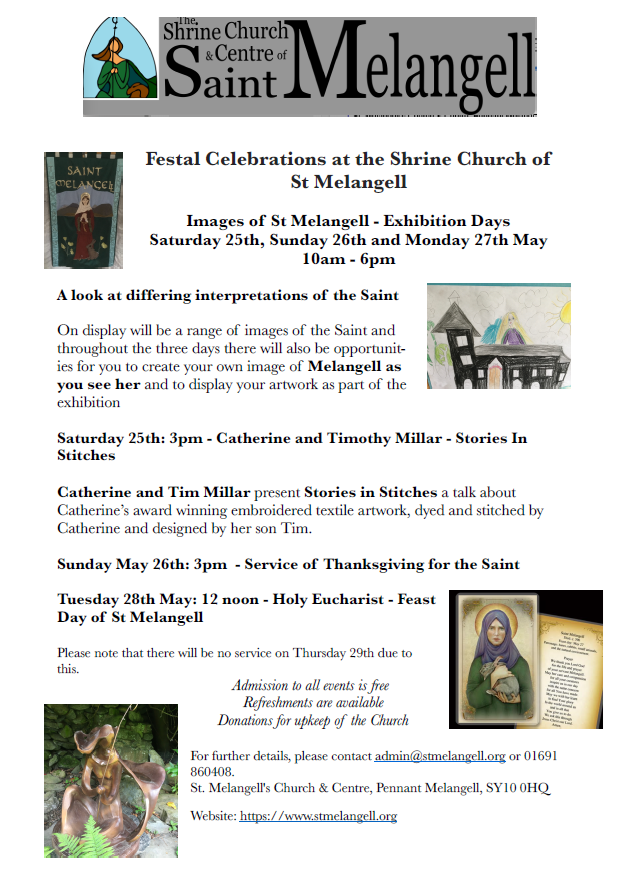”The Kingdom of God is as if someone would scatter seed on the ground….and the seed would sprout and grow, he does not know how.” Jesus, in Mark 4:26-34.
“Nature is not a place to visit. It is home.” Gary Snyder.
This valley is one of the most beautiful in Wales, a sacred site from pagan times and well before the arrival of Christianity. Not only is it significant because of St Melangell and the church that sprang up here but the foothills of the Berwyn Mountains have a rugged beauty that, with the waterfall, river and plentiful rainfall, creates lush hillsides which pilgrims and visitors here particularly enjoy. It’s been noticeable this week that the wooded hillside by the Centre, which was harvested last year, can produce a sense of shock and devastation for some of those who see it for the first time and compare it to what was. However, there are also visitors who find its bare slopes a salutary reminder that this is a place of work and production as well as beauty and peace – the replanting of saplings has begun and, in about forty years, it should look much better than it does now. These things take time!
It was the same when St Mark’s Gospel was written around AD 70, not long after the destruction of the Temple in Jerusalem by the Romans. That lead to a sense of devastation and Mark placed emphasis on being alert for the coming of the Kingdom of God at a time when it was not expected in the midst of the chaos being faced. The Gospel set for today echoes this, with its emphasis on sowing seed which sprouts and grows itself in the earth where it’s scattered. Jesus uses the example of the tiny mustard seed, which grows into a much larger plant and can even give shelter to birds in its branches. That is the hope here, where the tiny saplings being planted on the hill speak simply of future hope amidst current dismay without many words being needed.
The example Jesus uses of sowing mustard seed would be a familiar, everyday activity with which his hearers could easily identify in so rural a situation. By likening this to the Kingdom of God, Jesus indicates that God is also at work in the tiny things of life where small gestures and actions may eventually make a great difference. It’s a reminder, this Father’s Day, that small acts of kindness, encouragement and support can sow seeds for the future that may blossom even though we may not be aware of them when they happen and it may take time. That can have unexpected consequences too, it being said that Jeremiah Colman made his fortune and established the family business partly from the amount of mustard people took to use on their food but then left on their plate as it was so hot. Perhaps, when life is heated or chaotic for us today, the unanticipated arrival of the Kingdom of God which Mark emphasised is closer to hand than we think?
With my prayers; pob bendith,
Christine, Priest Guardian.


